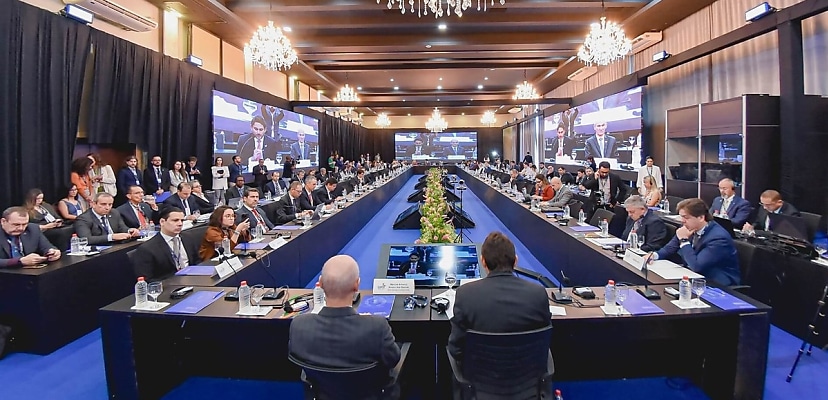Share this article on:
Powered by MOMENTUMMEDIA
Breaking news and updates daily.
Global leaders have met to discuss the importance of cyber security in an increasingly digitally connected world, as part of the G20 Digital Economy Working Group this week.

Leaders from the 20 participating countries, including Australia, China, Japan, Russia, the UK, and the US, met in the city of São Luís, the capital of Maranhão, Brazil, for the meeting.
On Monday (10 June), the group held a seminar on security in digital economies, discussing the issues that increased digital connectivity brings to security and privacy, particularly with the growth of developing technologies like artificial intelligence (AI).
The seminar included participation from Brazil’s Minister of State for Communications, Juscelino Filho, and the Office of the Institutional Security of the Presidency of the Republic (Gabinete de Segurança Institucional - GSI), Minister Marcos Antônio Amaro, joined by experts from around the globe.
The discussion was centred on “four priority axes: universal and meaningful connectivity; information integrity; digital government; and artificial intelligence”, according to the G20.
Minister Amaro said that global cooperation is key in thwarting digital threats.
“The G20 countries must strengthen cooperation and trust concerning digital security, exchanging experiences and good practices in safer connectivity, and mitigating threats inherent in the digital world,” he said.
“The environment is highly dynamic, and governments need to take proactive action against possible cyber attacks.”
Minister Filho added that the virtual world is key in the realities of real people and that this is an increasingly universal truth around the globe.
“Like climate change, the only effective way to address cyber security is to engage all interested and affected stakeholders, which involves practically the entire world population,” he said. “However, there is currently no minimum international ordinance.”
The summit discussed the importance of global regulations and standards, particularly for the protection of vulnerable parties such as children and the elderly, a message echoed by Professor Danielle Ayres from the Federal University of Santa Catarina.
“States move in a much shorter time than technological advances, which is why security systems require constant and periodical reviews, upgrades, and improvements,” she said.
“As this is a cross-border, intersectoral phenomenon, the solutions must be interconnected, and the states must make financial resources available for these actions.”
The G20 Digitial Economy Working Group is meeting from 10 to 13 June 10.

Be the first to hear the latest developments in the cyber industry.